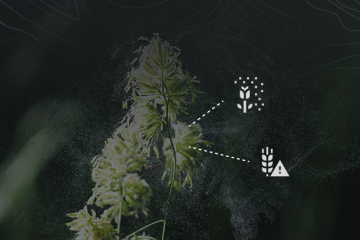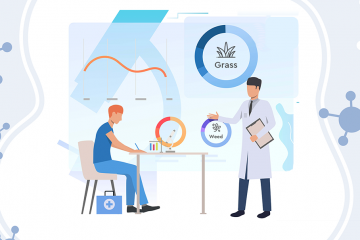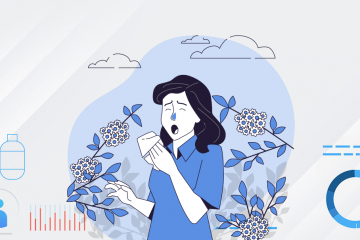Seasonal allergies are amongst the leading causes of chronic diseases in the US. More than 50 million people suffer from severe allergic reactions to the very air they breathe. Shockingly, nearly a third of these suffer because of pollen allergies, accounting for $18 billion every year. Despite having a large consumer base, pharmaceutical companies are drawing a blank when building trust with their customers and boosting their sales. Why is this happening?
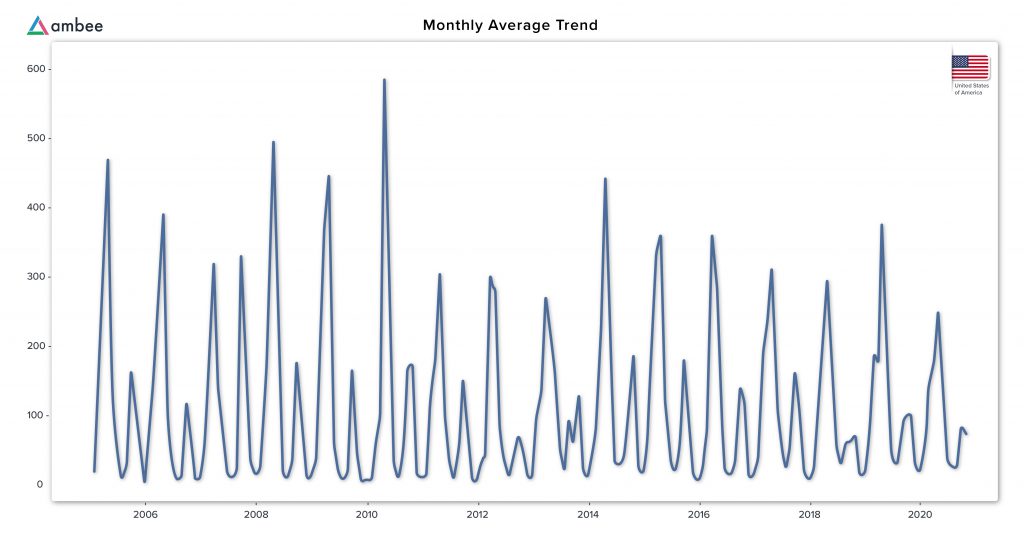
Several factors are hindering pharmaceutical companies from developing lasting relationships with their customers. Out of the many factors, maintaining a profitable marketing campaign and a loyal customer base needs attention. With environmental intelligence backing a targeted marketing plan, pharma companies can tackle this issue. Let’s see how pollen data can help these companies cater to their red-nosed customers and build a loyal customer base with a strong marketing plan.
Pharma companies can use accurate pollen data to design an efficient marketing campaign and increase sales in the following ways:
Streamline Advertising with Real-time Pollen Data
Pharma companies fall short in connecting with their consumers because of the lack of success in direct-to-consumer advertising (DTCA) that has been in play for a long time. These companies have spent millions of dollars on marketing campaigns that are largely irrelevant and confusing to most people. For example, in 2020 alone, the US pharma industry spent more than $6.58 billion on DTCA alone. These campaigns yielded a profit of less than one-third of the expenditure when they designed to multiply the revenue.
Companies can deliver their product message by streamlining their entire approach and backing it with intelligence, such as real-time pollen updates. Since more customers are now tech-savvy, they will look to its advertising campaign to stay ahead of pollen allergies and stock up on medicine.
Personalize Marketing Campaigns with Intelligence that Prevents Allergies
The only way any company can ensure customer loyalty is by creating value for them. This value creation occurs when the companies present something unique or personalize the whole experience for their customers. With stiff competition, personalizing brand experiences for customers is the most feasible and scalable option.
Pollen data paired with environmental intelligence provides alerts and recommendations to targeted customers based on their daily schedule. By doing so, brands are satisfying the customers’ needs, helping them prevent allergies, and also garnering more attention for their products.
Some examples for companies who are using Ambee’s pollen data for the development of their holistic brand experience are:
Kimberly-Clark Corporation’s Kleenex Anti-Viral Facial Tissue
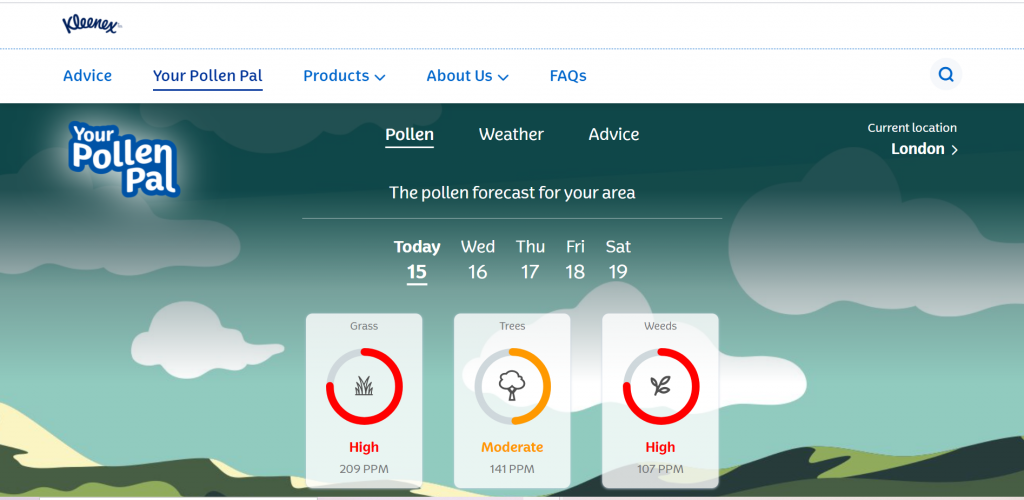
Kleenex’s anti-viral facial tissue is a product that helps users who may be affected by pollen manage and curb their allergies. This product gives protection against pollen exposure and creates awareness of the pollen count in the user’s surroundings.
Kleenex uses Ambee’s pollen API to achieve the following:
- Streamlining their marketing strategies through hyper-local targeting
- Enhancing customer engagement at the postal code level with accurate real-time data on air quality and pollen
- Alerting their customers with personalized mobile alerts, email notifications, HeatMaps on pollen counts, types, associated risk levels, AQ parameters
WPP
WPP is the world’s largest advertising company, catering to hundreds of industries from over 111 countries. They conduct consumer research and marketing strategies for pharmaceutical companies that need accurate data for their clients.
To ensure the best possible data that increases competitive advantages for their clients, WPP trusts Ambee. Ambee provides the company with accurate, hyperlocal air quality data and pollen data that is essential for conducting product research and development.
Claritin – Bayer’s Anti-Allergic Drug
Claritin is an anti-allergic drug, marketed by Bayer that helps patients overcome allergy symptoms such as sinuses, nasal congestion without causing any drowsiness. Bayer uses Ambee’s Pollen API for the UK to personalize its marketing strategies and improve its overall advertising ROI.
GlaxoSmithKline
GlaxoSmithKline (GSK) is one of the world’s largest pharmaceutical companies. GSK’s range of anti-allergic products uses Ambee’s Pollen API for the UK region to help customers stay updated with the hyper-local weather and pollen insights in their area. GSK uses Ambee’s data to increase targeted advertising campaigns, thus ensuring customer loyalty and response, leading to an immediate increase in revenue.
Primary Takeaways
In today’s information age, where data is available at the tips of their fingers, patients who experience allergies need accurate and relatable insights. This means actionable data, leading to personalized recommendations that patients can follow and apply in their daily lives.
Bridging the gap between the brand and its consumers can build customer loyalty. Real-time, accurate pollen updates help the patients connect with the brand and help develop a sense of loyalty.
By creating an avenue on which customers are dependent, pharma companies can manage their marketing campaigns and grow their customer base.
Foster Brand Loyalty and Increase Marketing Efficiency with Environmental Intelligence
With a vision to democratize environmental intelligence, Ambee collaborates with pharmaceutical companies to imbibe more value to their products. Additionally, Ambee’s accurate and real-time pollen data can help pharma companies innovate newer marketing campaigns and cultivate a sense of connection with the user.
To know more about other innovative applications of Ambee’s pollen data, visit us at getambee.com.
About Author

I have a deep-seated passion for the environment and in helping people improve the way they live their lives. As a co-founder at Ambee, I am committed to empowering individuals and businesses alike with the environmental data they need to heal our planet’s health.
